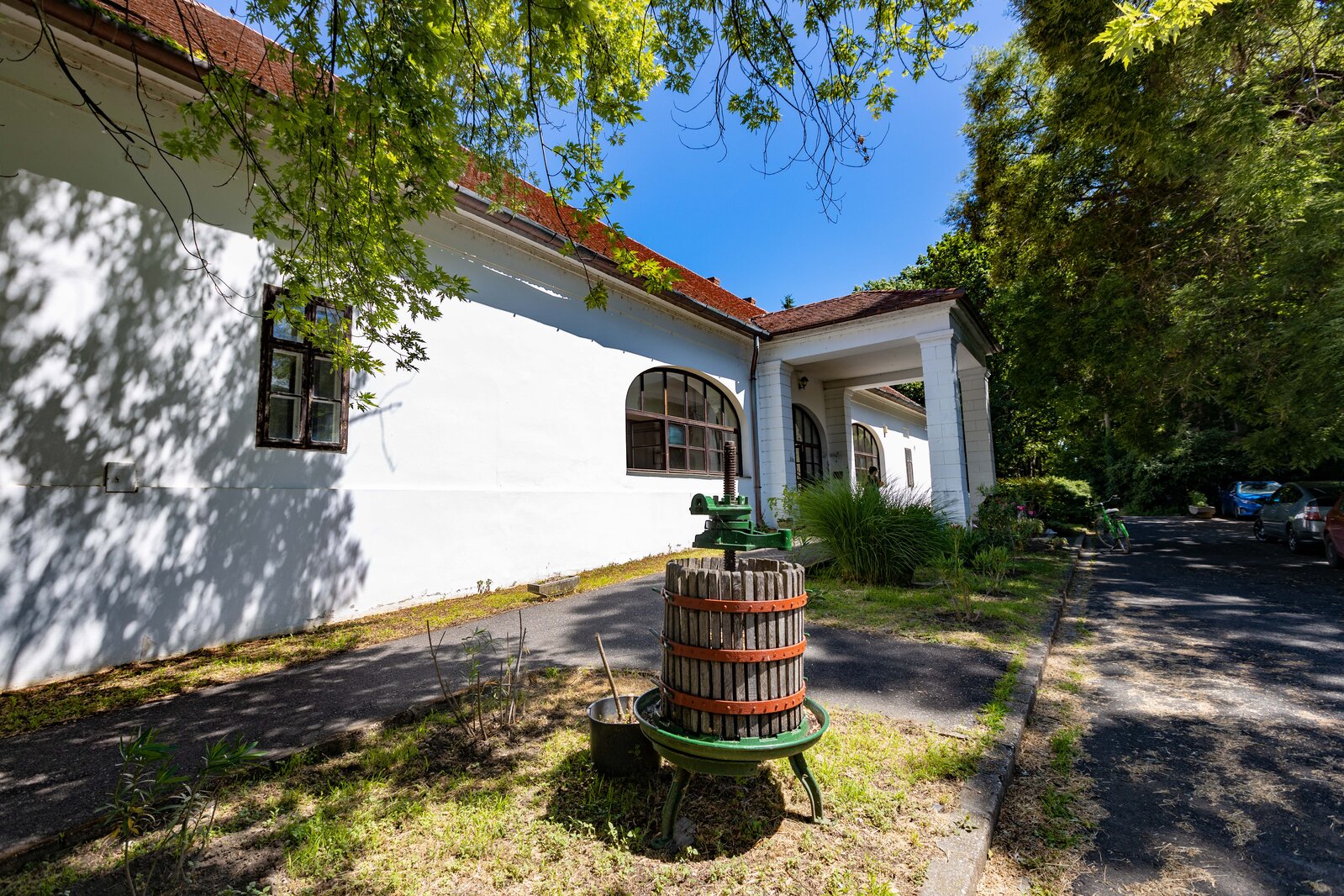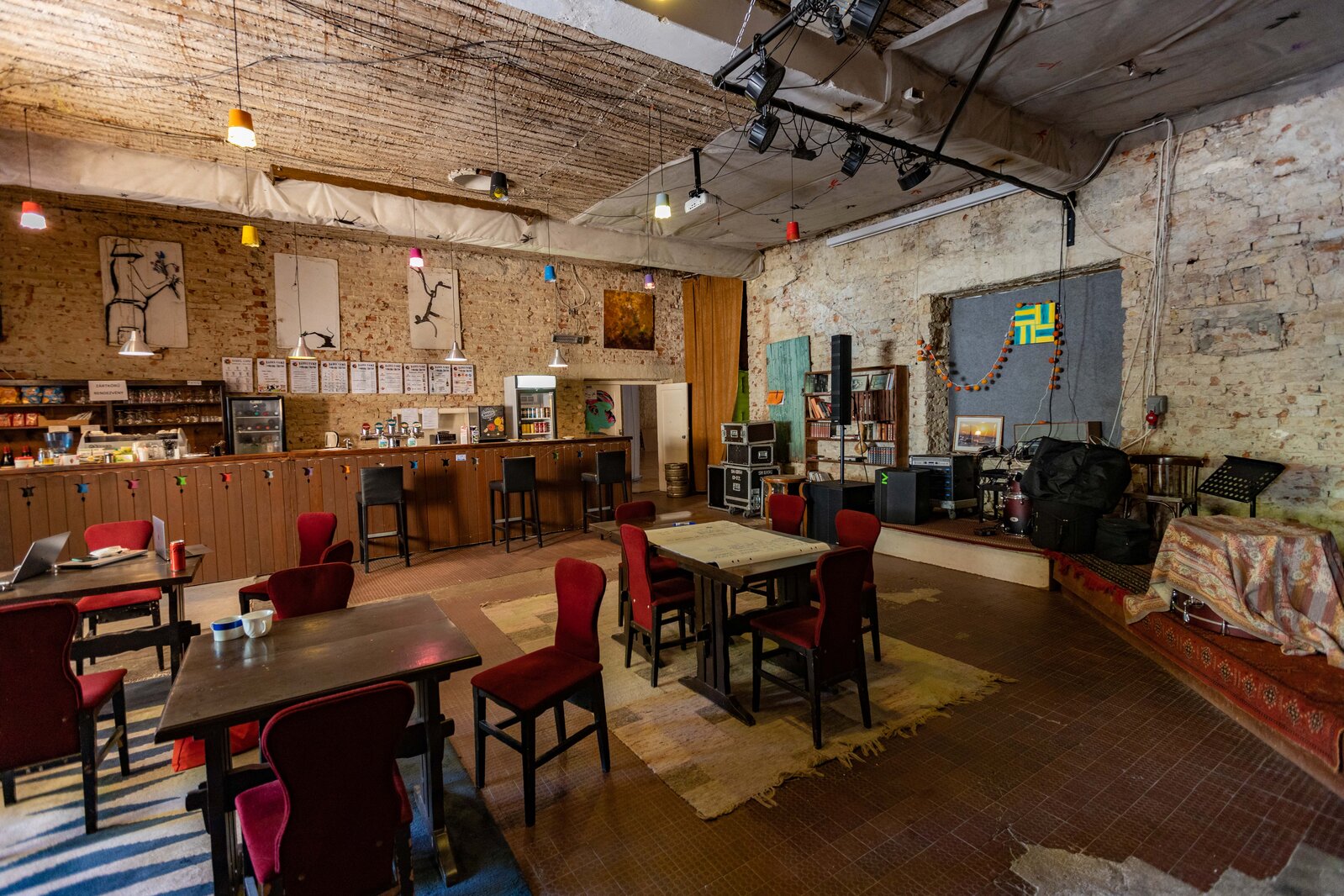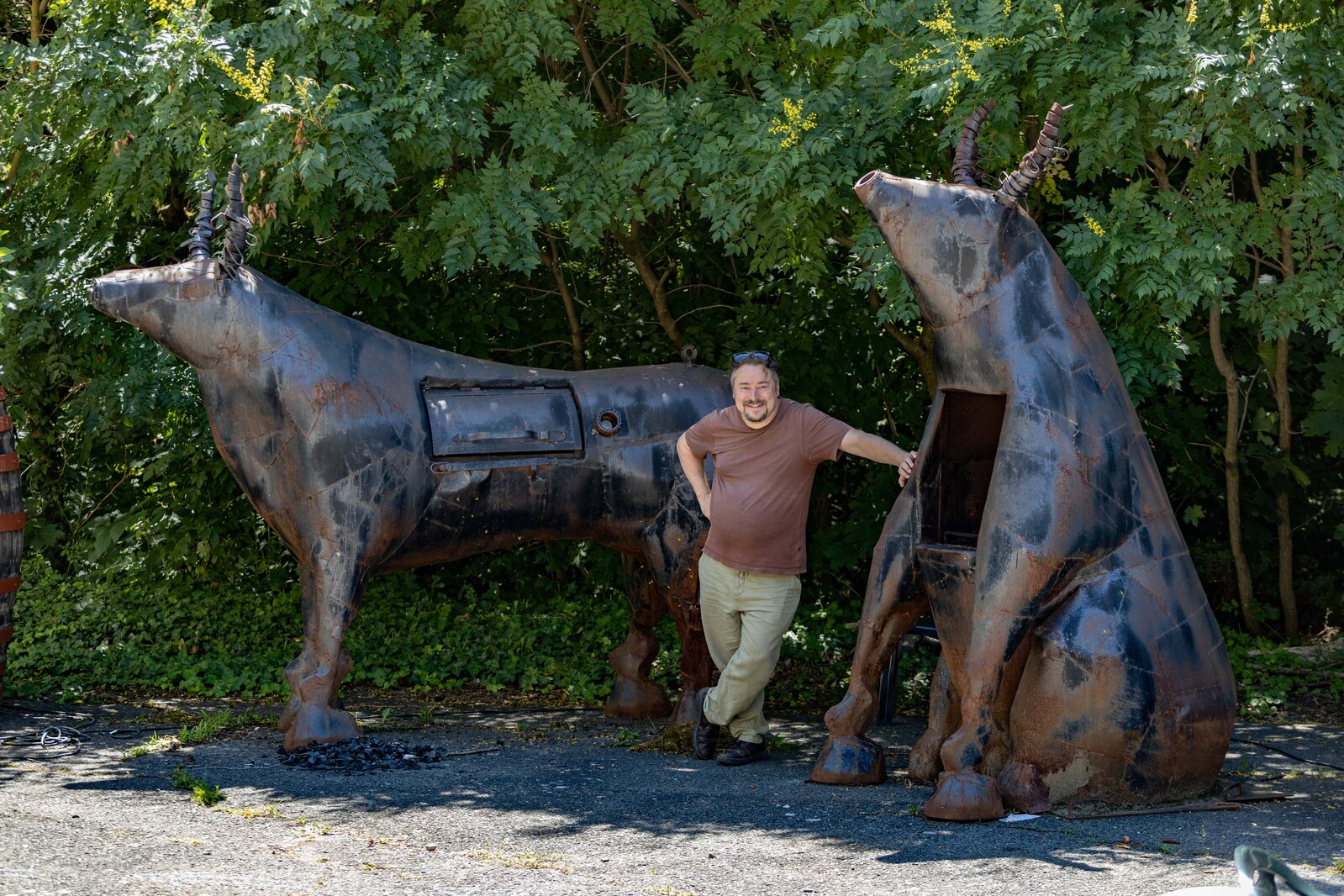The Cult-Net (Kultháló) programme is an enormous opportunity for rebuilding the community" – Cult-Net interview with Babel Camp CEO, Géza Nagy
The name Balatonboglár Babel Camp may be familiar to music and festival lovers because of the Babel Sound Festival. It has been held for over ten years, but this time the organisers are preparing even more exciting events – events connected to the Cult-Net programme. The former wine courtyard on the southern shore of Lake Balaton will serve as good base for fine arts with a focus on the importance of local identity.

Basically, the Babel Camp is an arts residency, a creative camp for artists. The main reason we joined the VEB2023 ECOC Cult-Net programme is to offer cultural programmes on the southern shore even when the high-season winds down,
- says Géza. He adds that the Cult-Net programme in Balatonboglár is timely because it coincides with the 50th anniversary of the exhibitions in what is now known as the Blue Chapel back in the early 1970s. As part of the Cult-Net programme, Babel Camp presents the identity and local cultural life in the context of the 1970-73 neo-avant-garde arts' spirit.
Balatonboglár's cultural life is very exciting and diverse, and the programme we have put together with local artists demonstrates how the story of the 1970s had influenced cultural life here.

Local identity, visual arts programmes and workshops
One of the core programmes of Babel is the Local Memory Conversations Series, entitled The Two Chapels: symbols of Balatonboglár's identity.
Sadly, soon no one will be left with personal memories of those events. In the public mind, many legends and stories circulate in several versions about the studio exhibitions held in the chapel. We have now undertaken to compile local remembrance so that in addition to the artist's recollections and the reports of the former secret police informers, a record of how local people experienced this period will also be prepared.
The programme will also provide an opportunity for locals to learn more about the history of the artists' colony and the exhibitions held in the Boglár chapel 50 years ago. The focus will be on the recollection of local people, specifically the people of the town. Some of the sessions will include external panellists: the journalist and musician Róbert Pálinkás Szűcs will attend the discussion entitled "Informers and provocateurs", and the cinematographer Lajos Nádorfi and visual artist and editor/director György Szemadán will participate in the session entitled "Boglár, the scene for alternative artists and culture". The next event of the discussion series is scheduled for 27 August.
In conjunction with the Chapel 50 series of events, Babel Camp will be the venue for the Visual Arts Artist Residency programme, entitled The Freedom of Art - The Art of Freedom, starting on 25 September and running until 15 October.

We thought it would be interesting to look back 50 years and see how the art and spirit of that period live on, how they are presented today and how they may be reinterpreted
-Géza explains. He adds that this is the essence of the programme, which will allow domestic and international participants to reflect to the studio exhibitions on show in the Boglár chapel and to the Kádár-era neo-avant-garde artistic experimentation through the medium of contemporary art. The artist residency programme will be facilitated by Ferenc Ficzek Jr., a member of the Pécs Workshop and associate professor at the Kaposvár Faculty of Arts, and Anita Dorner, designer and visual artist.
The Babel Camp will continue to reach out to town residents with its programmes even after the summer season ends. The Redesign Workshop will take place between 15 and 22 October, managed by professionals such as László Babodi, a Boglár folk musician, Balázs Székely, a drummer in alternative and punk bands, and Ferenc Somogyi, a jazz singer. Although they are involved in widely differing musical styles, they have more in common than just the love of music.
All three of them work with wood. László is a folk woodcarver, Balázs is a violin maker and carpenter, and Ferenc Somogyi is a sculptor. This event is specifically about the former BB winery centre, the wine courtyard, and the location of the Babel Camp. The place has a stock of inherited barrels and other wooden objects from the wine-making days, all in an appalling state of repair. The participants can recycle these remains to make new furniture, utensils, and decorative objects. At the end of the camp, they will exhibit the finished material.

Diversity and cultural life à la Babel
I think the real strength of Babel is its international network of contacts that allow us to bring in great world music bands from all over the globe along with the best domestic ones to perform. The same is true for the other cultural events we organise. It is an all-around arts base that can attract and cater for the needs of international participants
- says Géza, summing up the essence and diversity of Babel Camp.
In addition to international relations, enhancing local people's attachment to Balatonboglár will also be a priority. As Géza explains, it is not only native Boglár families who influence the cultural life of the town but also the people from different backgrounds who have moved to Balaton over the past few years.
Bizarre common threads and interconnections are revealed in our research. They are particularly exciting because they bring to light the hidden connections between the people connected to the town in one way or another.
It has already become clear from the Babel Camp's programmes that the events find their audience among Balatonboglár's 6,000 residents; a fact further reinforced by the several times more visitors during the summer season. The town also boasts of its choir, folk dance groups, and more than thirty civic organisations. It hosts various music, gastronomy and talent festivals, exhibitions, and film clubs. But Géza also notes that it is important to recall the developments over recent years that have left their mark on the town's community life.
I think the Cult-Net programme presents an especially great opportunity to reorganise the community after the coronavirus pandemic because it reflects on the cultural traditions of the municipality. It highlights them, puts them in the spotlight, it shows and places them in a context where the connections become even more transparent.
